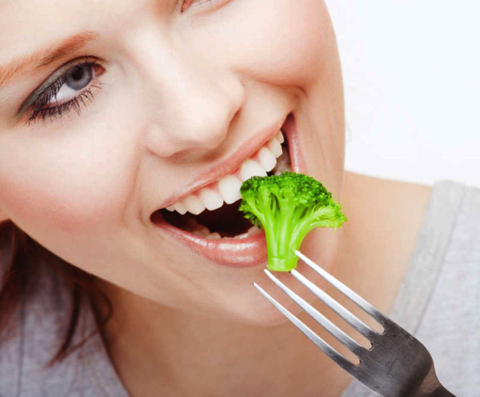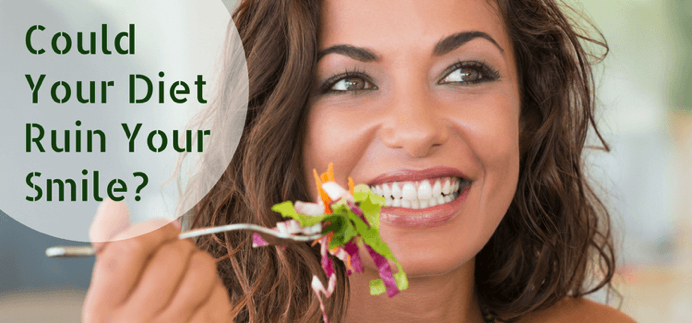During this Covid-19 period, many of us are cooking more than ever. Some may enjoy this, where others may see it as an extra chore to put up with.
Personally, I have always been very fond of cooking and trying out new recipes and I very much enjoy all the extra time I can now spend in my own kitchen. I never really had a sweet tooth, so my cooking tends to be mainly savory. However, my partner does enjoy a pudding or two, so nowadays I am trying some baking or making desserts to keep him happy too.
The way I look at food and diet as a dentist might be different than a GP or a dietician does. It will always be something I would discuss with my patients, as of course our diet has a great impact on the condition of our teeth. So therefore in my 2-part blog, I would like to give you some tips and tricks on a healthy diet from a dentist point of view.

Food and decay (caries)
First of all, sugar. This is probably no surprise to anyone, but sugar is not great for our teeth. It can cause decay, and eventually the decay can cause a hole in the tooth (‘a cavity’), which then will give trouble for the nerve of the tooth. But it’s not the sugar itself that causes the decay; it is actually the bacteria present in your mouth that feed from it. They will excrete an acid, which causes demineralisation from the enamel (hard white outer layer of the tooth). But luckily our body is very clever, and your own saliva can actually remineralise that enamel.
However, that saliva needs a bit of time to neutralise all those acids (usually circa 60 minutes). So the main thing we have to watch in our diet is frequency. Imagine having some biscuits, as these are usually high in sugar, you might want to have only one, but one biscuit may feel like it’s not enough, so about half an hour later you may have another one and so on.
In this case, the bacteria in your mouth will have something new to feed on every half an hour, and your saliva will not have had enough time to remineralise your damaged enamel. If this happens too often, your enamel will have permanent damage (a cavity in your tooth), which it can’t fix anymore. This is where we as dentists come in, and will have to repair the tooth with a filling.
For your teeth it would actually be better to eat all of those biscuits in one go, and not eat anything anymore until your next meal. In this way, the bacteria will have one feeding moment and the saliva will have plenty of time to neutralise those acids and help repair the enamel.
So try to limit your eating moments (acid attacks) to a maximum of 5 a day. This includes main meals as breakfast, lunch and dinner, any snacks and any drinks that have some form of sugar in it. This will only work if there is a limited amount of bacteria present on the teeth, so we have to brush and floss our teeth twice a day to make sure the plaque layer is removed, in which the bacteria live.
A healthy snack would be nuts or hard vegetables like carrots. There is some sugar in carrots, but due to the hard texture it will not easily stick to your teeth, and you will need to chew quite a bit which actually help the saliva flow to neutralise everything. Things to avoid are sugary snacks, but also snack like crisps. They are not high in sugar, but high in carbohydrates, which usually can be very sticky. These will easily stick on and in between your teeth, and provide a feast for the bacteria in your mouth.
By Dr. Nicole Verschaeren

